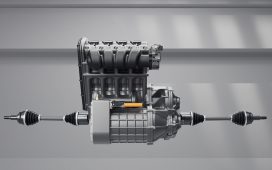“And at the end we think: ‘Is it useful? And how much does it cost?’ And we’re fighting about this ratio and deciding what to do. That’s an intensive process. It takes a few months.”
There was no single prevailing priority for this facelift, Giek explained, but rather an overarching aim to cement and bolster the Taycan’s appeal by leveraging technology and learnings from four years of production.
“After 60 years, we always find improvements for our icon: the 911. Every day we find another improvement, and like this we’re developing all our cars,” he said.
“Technology is going forward, you get new materials… The development is so fast that even one year after introducing a car, you could have a new idea and say: ‘We should have done this as well.’”
It’s no small boon, then, that there are around 150,000 Taycan owners globally, with wildly different vehicle requirements and usage patterns, from whom Porsche can gather feedback and suggestions.
“We have customers who have driven more than 300,000km already in their Taycans,” Giek explains, referencing one particularly helpful owner in France who uses his car as a private hire vehicle.
Giek himself has covered around 100,000km in prototypes during this development cycle – and he’s just one of many test drivers who have literally gone to the edges of the Earth in pursuit of the extreme conditions needed to verify the improvements that have been made.










